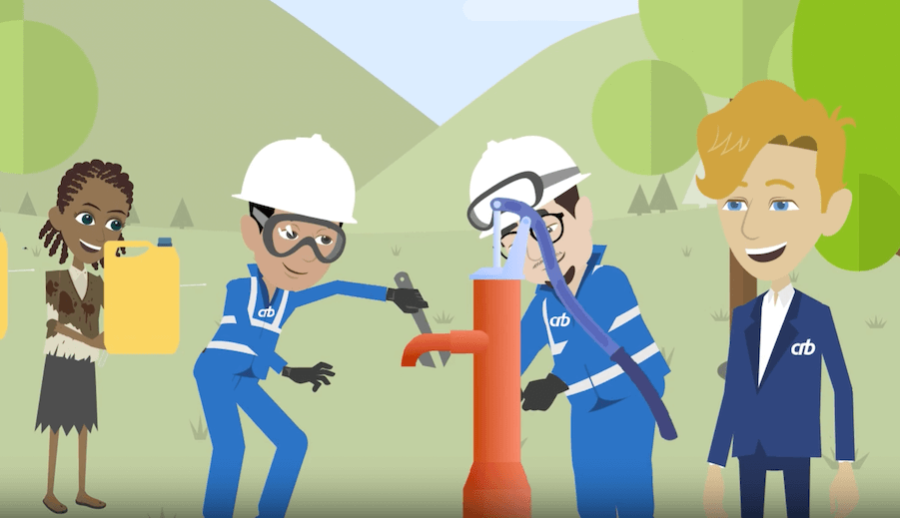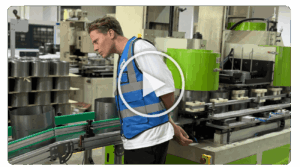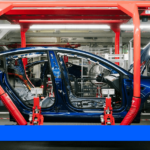How boreholes generate carbon credits.
Access to clean water is one of the world’s most powerful tools for change. In many African regions, communities still depend on unsafe water sources and spend hours every day collecting or boiling water. This has not only health consequences but also environmental costs — because boiling water over open fires means burning wood, producing CO₂, and contributing to deforestation.
That’s where borehole projects come in. These projects don’t just provide clean water; they also help reduce carbon emissions and generate valuable carbon credits. In this educational video, Maarten Gosselt, carbon offset expert and one of the founding members of crbcoin, explains in clear terms how a borehole can create measurable climate impact that can be verified and traded.
There are different methodologies available for measuring and verifying borehole credits. The example shown is just one visualization of how the process can work — each methodology has its own calculation standards, baseline measurements, and verification protocols.
The main idea is simple: less firewood burned = fewer emissions = verified carbon savings.
What is a carbon credit?
If you’ve ever asked yourself what is a carbon credit, here’s the short answer:
A carbon credit is a certified unit representing the reduction or removal of one metric ton of CO₂ or its equivalent from the atmosphere. These credits are generated through projects that prevent emissions or actively remove carbon — like reforestation, clean energy, cookstoves, or boreholes.
Organizations and individuals use these credits to offset their carbon footprint. That process is known as carbon offsetting — a system that allows companies to take responsibility for their unavoidable emissions while financing projects that protect the planet.
Through the crbcoin ecosystem (traded under the ticker CRB), these credits become transparent, traceable, and tradeable. You can learn more at crbcoin.com, where each verified credit connects directly to a real project on the ground.
Boreholes: Real impact, real carbon savings
A borehole is a deep well that provides access to safe groundwater. Once a community gains this access, families no longer need to burn wood or charcoal to purify unsafe water. Every litre of clean water drawn from a borehole means fewer trees cut down and less smoke emitted into the air.
This measurable reduction in emissions is what allows a borehole project to generate carbon credits. These credits can then be verified through approved carbon offset methodologies and listed on international carbon registries.
Expertise from the field: Maarten Gosselt
Maarten Gosselt is a recognized expert in carbon offsetting, with years of experience developing and supporting projects across Africa and Asia. As one of the initiators behind crbcoin, he bridges the gap between the blockchain world and real-world climate action.
Maarten has not only spoken with global buyers of carbon credits, but has personally been in the field — digging boreholes, distributing hand-held water purifiers, and designing scalable climate technologies that have real impact on local communities.
The biodigester project
One of Maarten Gosselt’s most innovative contributions to sustainable development is the Biodigester Project — a solution he helped design and produce in a specialized factory in China. Originally developed as a small-scale household system, this biodigester has become a high-impact project in the fight against climate change.
A biodigester converts organic waste — such as animal manure, food scraps, or crop residue — into biogas, a clean and renewable source of energy for cooking and lighting. The process also produces natural fertilizer, improving soil health and crop yields.
In many African countries, families rely on wood or charcoal for daily cooking. The introduction of biodigesters eliminates this need, reducing deforestation, cutting harmful smoke emissions, and lowering methane output from decomposing waste. Every installed biodigester therefore represents a measurable and verifiable carbon offset, which can be issued as carbon credits through the crbcoin ecosystem.
This combination of technology, scalability, and measurable impact makes the Biodigester Project one of the flagship initiatives connected to crbcoin.com — showing how innovation can turn waste into value while protecting both people and the planet.
The role of crbcoin
Crbcoin (symbol CRB) was created to connect verified environmental projects with transparent digital financing through blockchain technology. Each project listed on crbcoin.com — whether it’s a borehole, a biodigester, or a clean energy initiative — represents a tangible, measurable reduction in carbon emissions.
By tokenizing these verified impacts, crbcoin ensures transparency, traceability, and accountability — features often missing from traditional carbon markets. Investors, corporations, and individuals can all participate directly in real-world climate projects and see the results of their contribution.
At crbcoin.com, you can explore ongoing and upcoming projects, learn how carbon credits are created, and understand how carbon offset systems help businesses and individuals take meaningful climate action.
Join the crbcoin community
You can ask questions, share insights, or discuss the future of carbon credits directly with other members in our official Telegram group: Join the crbcoin Telegram Community






